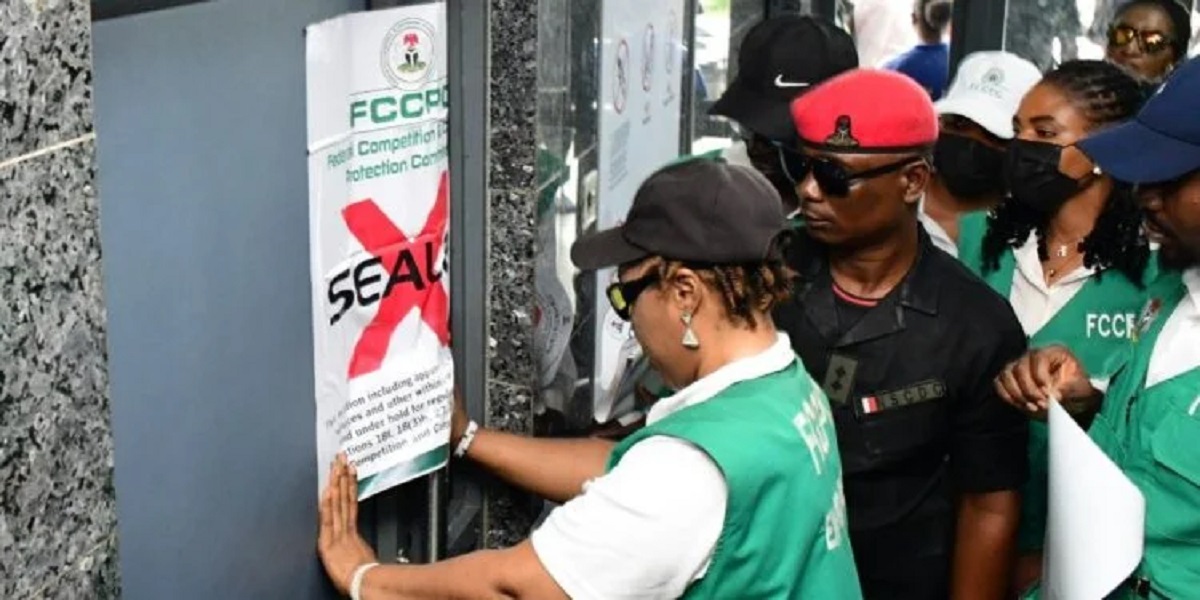News
Nigeria Unveils $618m Investment to Create Digital Skills, Jobs

Nigeria has unveiled a $618 million investment programme, to promote innovation and entrepreneurship in the digital, technology and creative industries targeted at job creation.

Nigeria vice president, Prof. Yemi Osinbajo, who presided over the launch of the Investment in Digital and Creative Enterprises (I-DICE) programme, revealed the project culminated from his conversation with Dr. Akinwunmi Adesina, president of African Development Bank (AfDB), in South Africa five years ago.
Osinbajo said: “What you may not have been told is the incredible effort that Dr. Akinwunmi Adesina, President of AfDB put into this to make it happen. The thinking came from a discussion he and I had in 2018 on how to leverage technology and industry for jobs for young people. He told me at the time that the AfDB was already thinking along the lines of committing some funding to some iteration of the idea.”
Fast-forward to Tuesday, the i-DICE programme was unveiled, aimed at upscaling entrepreneurship and innovation in digital technologies and creative industries.
“The fruit of that discussion and the hard work of many is what we witness here today. The fund as we were told is $618 million, out of which the AfDB provides $170 million, the Agence Française de Développement provides $100 million and the Islamic Development Bank will provide $70 million in co-financing,” said Osinbajo.
“The Bank of Industry, representing the federal government, will provide $45 million as a counterpart contribution, to be availed through loans for qualifying start-ups. And as we heard from the President of AfDB, we expect, by leveraging this fund, another maybe $271 million from the private sector and institutional investors.”
The I-DICE programme is anticipated to help to fill critical gaps in Nigeria by supporting enterprise and skills development, access to demand-driven digital and creative skills, entrepreneurship skills, ICT enabled infrastructure, as well as access to finance.
Turning point
Adesina said the I-DICE programme is set to be ‘a real game changer’ in Nigeria.
“It will help to create 6.1 million direct and indirect jobs and equip more than 175 000 young people with the technology and creative skills needed to drive innovation and foster entrepreneurship.
“To start with, I-DICE will support 451 digital technology start-ups, 226 creative enterprises and 75 enterprise support organisations. The benefits of the programme to Nigeria’s economy are projected to be worth $6.4 billion,” he said.
“Yes, we gather to launch the initiative, but what we are really launching is more than this. We are launching hope for the youth. We are launching platforms that will enhance the ability and capacity of Nigeria’s youth to thrive. We are launching the creation of millions of jobs.
“We are retooling Nigeria to be more competitive in an increasingly digital world. We are creating hope for a new Nigeria, driven by the power of the youth.”
Adesina said the size of Africa’s digital economy will rise from $115 billion today to $712 billion by 2050, hence the need to prepare young people.
“Most of this growth is already being driven by four countries, Nigeria, South Africa, Kenya, and Egypt,” he said.
“We are already witnessing in Nigeria the power of digital technologies, tools and platforms. Nigeria currently has five out of the 11 digital companies that have reached the status of unicorn, with a market valuation exceeding $1 billion. Names that come to mind include Jumia, Interswitch, Opay, Flutterwave and Andela, mainly in the fintech space.”
Further, Adesina said the AfDB is ‘making great strides’ in empowering youth on the continent.
From 2016 to 2021, he said, the ADB supported the creation of over 12 million jobs, 3.1 million of which were direct and nine million indirect.
He explained: “This has been made possible through our high employment impact operations and special initiatives in key sectors such as agriculture, infrastructure, energy, and financial sectors, as well as in the digital and creative industries.
“Additionally, the Bank’s Coding for Employment programme has provided onsite centres and digital training platforms that have equipped 23 200 youth from 45 countries with the skills needed to succeed in the digital job market.
“We have invested $2 billion in 37 tech projects to improve national and regional broadband infrastructure, foster private investment, and support digital enterprises.”
Looking ahead, Adesina said: “The African Development Bank is currently designing and will soon roll out youth entrepreneurship investment banks, new financial institutions that will build robust financial ecosystems around the businesses of young people across Africa.”
News
DBN Awards N13m in Grants to Tech Startups

Development Bank of Nigeria (DBN) has awarded a total of N13 million in grants to three standout tech startups at the 2025 Techpreneur Summit held in Lagos, reinforcing its commitment to innovation and inclusive growth among Nigeria’s micro, small, and medium enterprises (MSMEs).

The winners include: BuyScrap, a digital marketplace for recyclable materials – N6 million; Qiqi Farms, which connects local farmers to hospitality and export markets – N4 million; Eco-Cyclers, a youth-led recycling initiative based in Enugu – N3 million
Alongside the grant awards, DBN also launched a new digital data asset, a first-of-its-kind platform aimed at enabling data-driven decisions within the MSME ecosystem.
The platform offers deep insights into business trends, sector-specific challenges, and growth opportunities—supporting smarter policymaking and targeted investments.
In his keynote address in Lagos, Tony Okpanachi, managing director/ CEO, DBN, described the event’s theme, “CTRL + SHIFT: Tech Empowered Movement for Naija,” as a strategic call to reimagine enterprise development in Nigeria.
“This isn’t just a keyboard shortcut,” he said. “It’s a mindset reset—powered by technology—to build a more inclusive, innovative, and resilient business landscape. From financing to innovation, DBN remains committed to enabling MSMEs to thrive.”
Okpanachi emphasized that the Summit aligns with DBN’s AMPLIFI Strategy, which integrates digital transformation, sustainability, and scalability into its core programs.
He highlighted initiatives such as the Digital Shift Workshops and the Eco-Innovation Challenge as key steps toward embedding innovation in Nigeria’s MSME sector.
Encouraging young innovators, he added: “The future belongs to those bold enough to imagine and build it. DBN is proud to support the ideas that will shape tomorrow.”
A major highlight was the unveiling of the DBN Data Asset—a digital platform designed to provide real-time, evidence-based insights into Nigeria’s MSME landscape.
The platform combines DBN’s proprietary data with external sources like the National Bureau of Statistics (NBS) to offer a comprehensive view of MSME performance by region and sector.
Jeremy Dan Okayi, DBN’s Head of Strategy, Policy & Innovation, described the platform as: “A reservoir of insight, potential, and direction—built on two years of collaboration and shared vision. This tool will support informed decision-making across the public and private sectors.”
News
FCCPC Shuts France, Belgium, and Italy Visa Centres in Abuja Over Alleged Consumer Rights Violations

In a bold enforcement action, the Federal Competition and Consumer Protection Commission (FCCPC), supported by the Nigeria Police Force and the Nigeria Security and Civil Defence Corps (NSCDC), has sealed off the visa application centres of France, Belgium, and Italy in Abuja over alleged consumer protection breaches and obstruction of regulatory investigations.

The affected centres—located at Mukhtar El-Yakub House in the Central Business District and operated by TLS Contact, a Teleperformance Company—were shut down following reports that they refused to accept formal correspondence from the FCCPC regarding a consumer complaint. The Commission cited further infractions, including obstruction of investigation and alleged assault of its officers during lawful duties.
Speaking to journalists at the scene, Mrs. Boladale Adeyinka, Director of Surveillance and Investigations at the FCCPC, explained: “This is an enforcement operation against TLS. On March 25, 2025, we served them a letter to address a consumer complaint, which they refused to accept. Instead, TLS officers assaulted our team, and in a subsequent visit on June 17, they also allegedly assaulted uniformed police officers.”
Citing Section 33 of the Federal Competition and Consumer Protection Act (FCCPA), Mrs. Adeyinka emphasized that failure to comply with Commission directives constitutes a criminal offense, punishable by imprisonment, fines of up to ₦20 million, or both.
TLS has been ordered to appear before the Commission on June 20, 2025, to provide testimony, submit evidence, and make formal depositions. The company may be held liable for any financial losses suffered by applicants due to the disruption of visa services.
Despite multiple requests for comment, management at TLS Contact declined to respond as of press time.
News
How and Why N210 Trillion is Missing in NNPCL – CFO

Adedapo Segun, chief financial officer (CFO), Nigerian National Petroleum Company Limited (NNPC), has explained why there is a missing sum of N210 trillion in the company’s audited financial statement spanning from 2017 to 2023.

According to Segun, the missing funds are cash calls requested by joint venture (JV) partners and settlement to the JVs.
He spokeat a session of the Senate Committee on Public Accounts chaired by Aliyu Wadada.
Segun was responding to an alarm raised by the committee over missing N210 trillion in NNPCL’s audited financial statement.
Recall that Wadada issued a one-week ultimatum to NNPCL to account for the missing N210 trillion.
Reacting, Segun said, “The N103 trillion and N107 trillion are made up of joint venture cash calls that have been requested by the JV operators and JV cash call payments made by NNPCL, which are yet to be reconciled because governance procedures were not done at that time.
“That is why you see the description reflecting those two items would be washed out because they are two sides of the same transaction, which is the cash calls by JV partners and the settlement by NNPCL.”
However, Habu Sadeik, a financial analyst, in a post on X on Thursday, said Segun’s response was unsatisfactory.
Saidik faulted NNPCL’s response about the fund discrepancies, noting that something is not right with the audited financial statement.
“Forget about the senators’ lack of knowledge.
“The CFO’s response is not satisfactory. Are you saying that cash calls worth hundreds of trillions are just appearing on your FS only in 2024 without 31 disclosure?
“If it’s a cash call, why hasn’t the disclosure said so?
“Which cash call is over 100 trillion?
“Something is definitely not right, and I hope they retrospectively correct that FS.
“Someone somewhere did a chef’s work,” he wrote on X.

 News2 days ago
News2 days agoLasaco Assurance to Invest in Technologies, Systems to Deliver Value to Clients

 E-Financial2 days ago
E-Financial2 days agoNIBSS National Payment Stack to Transform Nigerian Instant Payments

 E-Financial2 days ago
E-Financial2 days agoCBN Reaffirms Banking Sector Resilience as Forbearance Ends

 News1 day ago
News1 day agoPalmPay, Glo Launch “Recharge and Win Bonanza 2” with Exciting Prizes

 General News1 day ago
General News1 day agoBridging the Digital Divide: Over 700 Young Africans Empowered by Paradigm Initiative

 General News1 day ago
General News1 day agoIHS Nigeria, United Nations Global Compact Host High-Level Dialogue on Sustainability and Greener Business Practices in Nigeria

 News1 day ago
News1 day agoHow and Why N210 Trillion is Missing in NNPCL – CFO

 General News2 days ago
General News2 days agoMoniepoint Demonstrates Commitment to Nurturing Africa’s Future Leaders




























